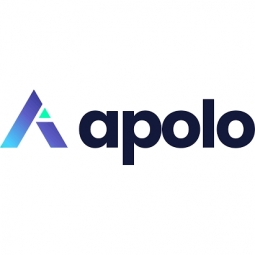Case Studies.
Add Case Study
Our Case Study database tracks 22,657 case studies in the global enterprise technology ecosystem.
Filters allow you to explore case studies quickly and efficiently.
Download Excel
Filters
-
(3)
- (2)
- (1)
- (1)
-
(1)
- (1)
-
(1)
- (1)
- (1)
-
(1)
- (1)
- (2)
- (1)
- (1)
- (1)
- (1)
- View all 7 Industries
- (4)
- (1)
- (1)
- (2)
- (1)
- (1)
- (1)
- (1)
- View all 7 Use Cases
- (3)
- (3)
- (1)
- (4)
Selected Filters

|
AI-Driven Ecommerce Growth: Dianthus Case Study
Dianthus, a leader in scaling Direct-to-Consumer (D2C) brands, faced a significant challenge in the creation of unique visual marketing assets for ecommerce product marketing. The process was cumbersome and manual, making it difficult to generate assets suitable for social sharing. The proposed solution was to develop a sophisticated AI computer-vision system capable of generating unique photographs, including computer-generated human or animal models against naturalistic backgrounds, that also incorporated the D2C product. However, creating believable AI-generated product shots with digital influencers required a unique machine learning and data pipeline that incorporated multiple processes such as background generation, identity generation, 3D rendering, human positioning, product positioning, and harmonization of all elements. The pipeline also needed to allow for results to progress through various stages of refinement to deliver a finished photo result that was attractive and natural-looking enough to share on social media.
|
|
|

|
Altis: Revolutionizing Home Fitness with AI Personal Trainer
Altis, an innovative consumer AI startup, aimed to revolutionize the home fitness industry by offering personalized fitness training using AI vision technology. The proposed AI system needed to accurately track and analyze movements, identify a wide range of exercises, including those using popular gym equipment, weights, machines, and detect errors in form. The system also needed to support multiple cameras and operate in real-time. To control costs and maximize asset utilization, Altis wanted to implement pipelines and MLOps on their existing on-premise GPU servers, while retaining the ability to scale globally on the cloud of their choice. The challenge was to develop a solution that was suitable for both hardware and cloud-based inference, and could scale globally without being tied to a single cloud provider.
|
|
|

|
Zero-Emissions AI Infrastructure: A Case Study of atNorth and Neu.ro
The cloud revolution is in full force, with AI being a major driver of new cloud adoption. IDC estimates that fast-growing AI workloads will account for up to 50% of the total cloud market by 2025. However, this progress comes at a significant cost to the environment. Information and Communications Technologies (ICT) already account for an estimated 9% of total global electricity use, a figure that could more than double by 2030. AI’s portion of electricity consumption is growing much higher than other technologies. Deep Learning models and the data sets they train upon are growing at an extraordinary rate. In less than 5 years, the leading language model will have increased in size by over 100,000x. The competitive challenge presented by hyperscale CSP AI development platforms (Azure Machine Learning, AWS Sagemaker, GCP AI) required an immediate response. Neu.ro provided a market proven platform with unique advantages.
|
|
|

|
EMBL Enhances Microbiology Methods with Deep Learning
Researchers at EMBL, Europe’s flagship laboratory for the life sciences, were looking to enhance traditional microbiology methods with Deep Learning. Their goal was to reconstruct the complex biological phenomena that underpin the life cycle of cells. This was a significant challenge due to the complexity of cell life cycles and the limitations of traditional microbiology methods. EMBL operates across six sites in Europe and has more than 80 independent research groups covering the spectrum of molecular biology. The challenge was to develop a solution that could accurately model the lifecycle of cells and provide insights into complex biological processes.
|
|




